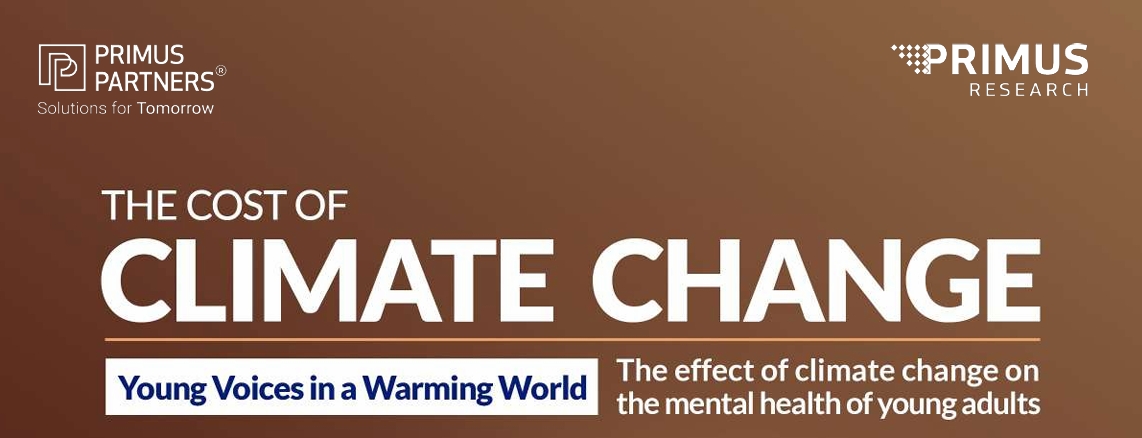$13.7 B annual GDP loss due to climate-induced mental health issues: Report
April 04, 2025 | Friday | News
Young people aged 15-24 are highly vulnerable to climate change's mental health impacts
From shifting weather patterns that threaten food production to rising sea levels increasing the risk of catastrophic flooding, climate change's impacts are global in scope and unprecedented in scale. A comprehensive study by Primus Partners titled “The Cost of Climate Change: Young Voices in a Warming World” has highlighted significant findings on the effects of climate change on the mental health of young adults aged 15-24.
Anxiety and stress are the most prevalent climate-induced mental health issues, affecting 26% of respondents in this age group. Of the 46% who reported experiencing mental health issues owing to climatic changes, only 33% are aware of available support services.
Climate-induced mental health challenges in the 15-24 age group could lead to a potential annual financial loss of approximately $13.7 billion, equating to 0.35% of India’s current GDP. This loss is part of a broader 6% GDP reduction associated with health complications.
According to the WHO, climate change could contribute to an additional 250,000 deaths annually between 2030 and 2050 due to extreme weather events' impact on mortality and morbidity. A 2020 Royal College of Psychiatrists study found that 60% of child and adolescent psychiatrists in the UK's NHS had seen a patient distressed about environmental and ecological issues.
As a strategic response, the study recommends developing a national policy integrating climate-related mental health strategies into the National Mental Health Programme (NMHP); specialised training for school counselors on climate change-induced psychological stress and establishing effective referral mechanisms; and strengthening outreach for mental health services by enhancing Tele-MANAS and increasing awareness through government-led campaigns involving Community Health Officers (CHOs), Accredited Social Health Activists (ASHAs), and Auxiliary Nurse Midwives (ANMs).










